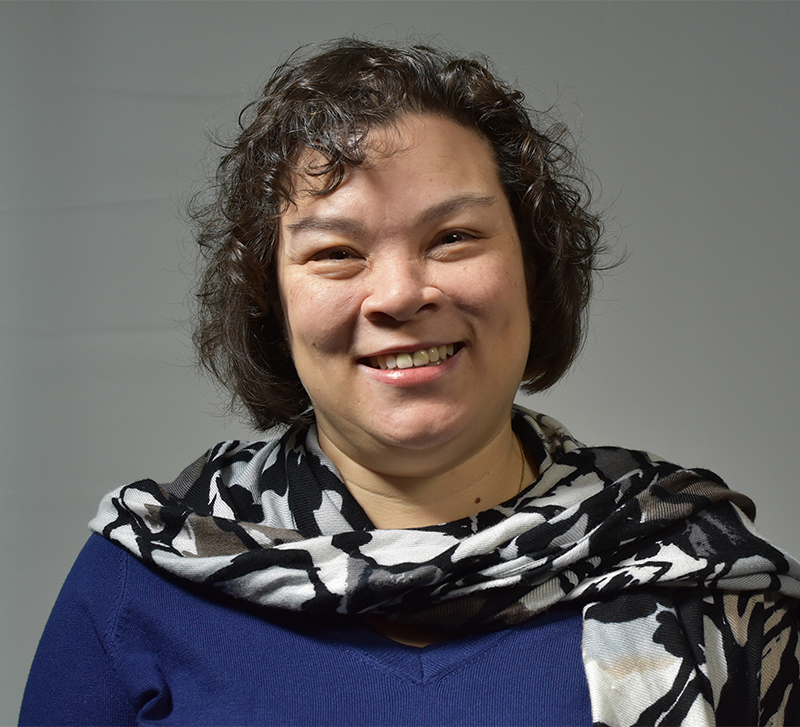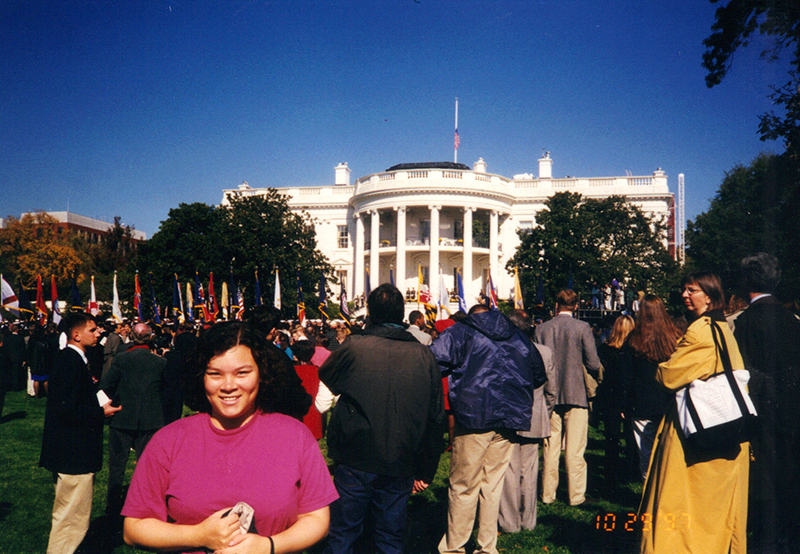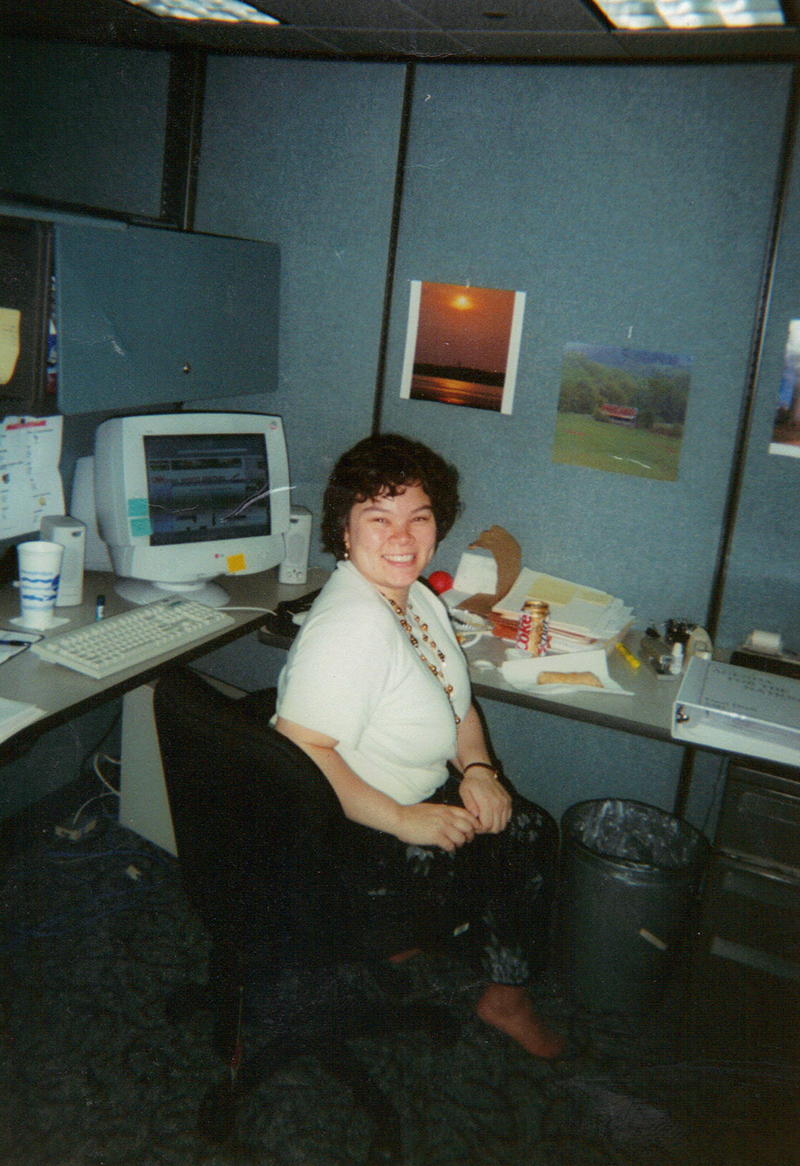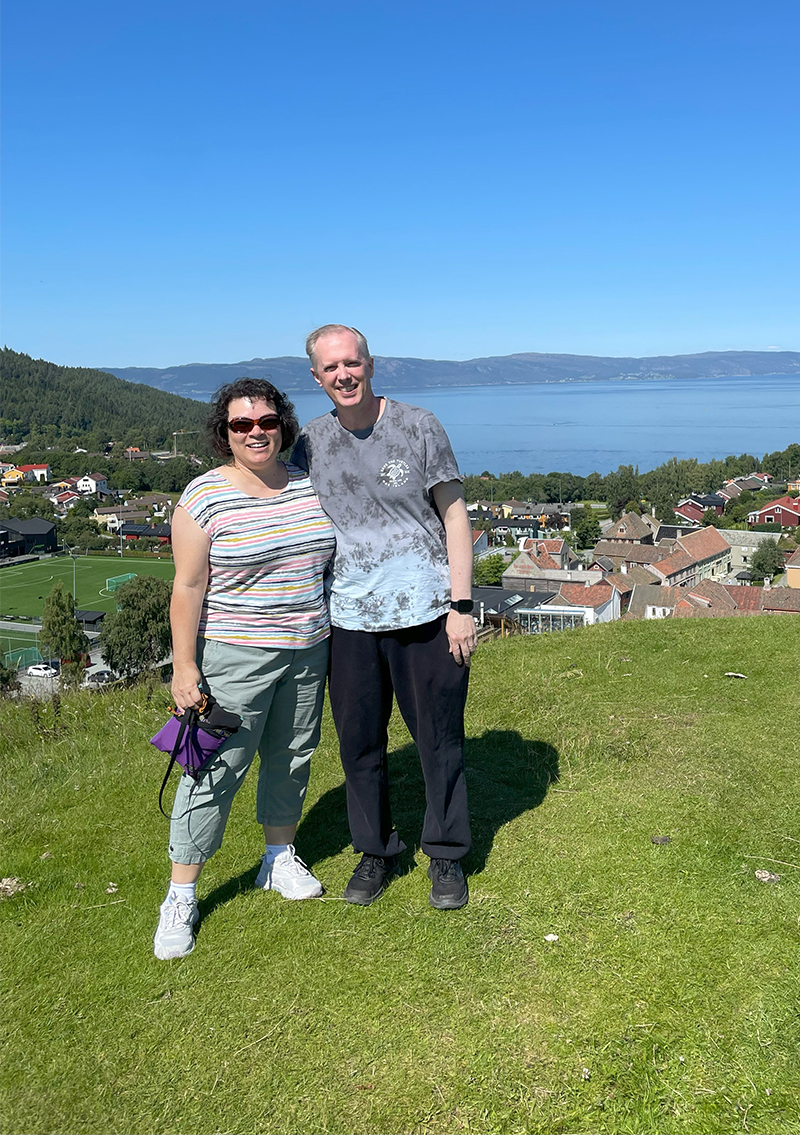Serving Science With a “Big Picture” Perspective
How did your upbringing influence your path toward public service?
 My parents were social workers, and ultimately my dad became CEO of a regional non-profit mental health center. In addition to traditional client therapy, my mom ran the local volunteer hospice and did child development and housing work. She was always more on the front line, although my dad was on the local school board for six years and took me campaigning with him door-to-door. Non-profit public service was at the forefront of our daily lives and greatly influenced the family values we had growing up.
My parents were social workers, and ultimately my dad became CEO of a regional non-profit mental health center. In addition to traditional client therapy, my mom ran the local volunteer hospice and did child development and housing work. She was always more on the front line, although my dad was on the local school board for six years and took me campaigning with him door-to-door. Non-profit public service was at the forefront of our daily lives and greatly influenced the family values we had growing up.
You’re chief of NICHD’s Financial Management Branch. One would assume that math or accounting was your focus in college, but you pursued political science. Why?
During my junior year of high school, I lived in New Zealand for a semester and went to an all-girls public high school with a British model of schooling. My family also accompanied my dad on his sabbatical in Malaysia my senior year, so I got to do some significant international travel when I was young.
I was in the 10th co-ed class at Haverford College in Pennsylvania, a small liberal arts college where you had to take some science, social science, and humanities. It feels silly to say this today working at NIH, but back then I had no interest in fulfilling my science requirement with a laboratory course, so I took astronomy. I also took calculus and statistics. But I was not interested in a math major because it gets too theoretical. I liked political science, and I had a concentration in comparative government and studied international politics, which spun out of my experiences and exposures to other countries and cultures when I was younger.
What led you toward a career in the federal government?
 During my junior year of college, I got a flyer in my mailbox for a summer program in public policy and international affairs run by Princeton’s Woodrow Wilson National Fellowship Foundation. I applied and was selected to go to Berkeley, California, for the summer, which was a different world from my small liberal arts school in Pennsylvania! After I arrived, I found out I was eligible for a graduate school fellowship that would pay in full for a program at one of 32 different public policy or international affairs programs. I had no idea what public policy was, but I learned that it opened the door to careers in government, as well as the non-profit or for-profit sectors. I tell people that you have to be open to things because you never know what's going to happen. One of my most valuable opportunities came simply because I responded to a flyer in my mailbox!
During my junior year of college, I got a flyer in my mailbox for a summer program in public policy and international affairs run by Princeton’s Woodrow Wilson National Fellowship Foundation. I applied and was selected to go to Berkeley, California, for the summer, which was a different world from my small liberal arts school in Pennsylvania! After I arrived, I found out I was eligible for a graduate school fellowship that would pay in full for a program at one of 32 different public policy or international affairs programs. I had no idea what public policy was, but I learned that it opened the door to careers in government, as well as the non-profit or for-profit sectors. I tell people that you have to be open to things because you never know what's going to happen. One of my most valuable opportunities came simply because I responded to a flyer in my mailbox!
I ended up at Duke University for graduate school, but before I started, I did an internship at the Federal Bureau of Prisons, where I learned about how the federal government is structured. Later, I did an internship in the communications office at the Environmental Protection Agency in Seattle. But even after these internship experiences, I still didn’t know what I wanted to do after graduate school, so I applied for the Presidential Management Fellows (PMF) Program.
How did you find your calling in budgeting? What attracted you to the work?
 I got a job through the PMF Program at the Administration for Children and Families (ACF) and thought it was a good fit for me with my background. Like my parents, there are a lot of people with master’s degrees in social work at ACF – I felt like I knew those people! My first rotation put me in the budget office. I learned not to be scared by numbers. I also learned that the budget world is a weird one. Sometimes you’re rounding off to the nearest million, but also trying to find where $215 went in your spreadsheet.
I got a job through the PMF Program at the Administration for Children and Families (ACF) and thought it was a good fit for me with my background. Like my parents, there are a lot of people with master’s degrees in social work at ACF – I felt like I knew those people! My first rotation put me in the budget office. I learned not to be scared by numbers. I also learned that the budget world is a weird one. Sometimes you’re rounding off to the nearest million, but also trying to find where $215 went in your spreadsheet.
The experience gave me a lot of insight into ACF because the budget office touches all parts of the agency. Later, I did rotations in program and legislative offices. But when it was time to figure out what I wanted to do at the end of the fellowship, I’d learned something about myself: I'm a curious person and I like to know things. I liked being in the place where I could see the big picture for the agency.
Leading the budget at a scientific institute seems like quite a different challenge. What do you find rewarding about your work at NICHD?
Our job in the budget office is to provide good advice to leadership and help staff solve problems. While the end results of research ultimately help individuals and families, our day-to-day tasks are more about servicing the scientists who do that work—whether it's the university scientists, the scientists working in NIH labs, or the person overseeing their scientific portfolio. At NICHD, I enable advances on public health challenges that have a big impact on people by ensuring the money goes where it needs to go. Without the money, nothing happens.
What advice do you have for people who wonder if a career in finance or budget could be for them?
I always tell people that I've never taken an accounting class in my life. People think you have to be an accountant to do this work. I am not an accountant, although I do benefit from having people with accounting experience on my staff. There are many options for people to do budget work. In the NIH community, there are administrative officers and grant and contract specialists. There are people who have MBAs and people with high school degrees. You can come into budget in many ways, and you can bring those perspectives with you. As a budget officer, it’s valuable to have people who have different backgrounds on my team.
How do you find work-life balance?
 Most of the year, when I’ve left the office, I’ve left work. I have two sons—one in college and one who graduated from college—and a daughter who is a junior in high school. There are lots of demands outside of work when you have three kids. When all three were at home, a lot of my time went to my kids’ extracurriculars. I went to academic bowls, basketball games, and marching band competitions. Currently, my daughter is in the color guard at school.
Most of the year, when I’ve left the office, I’ve left work. I have two sons—one in college and one who graduated from college—and a daughter who is a junior in high school. There are lots of demands outside of work when you have three kids. When all three were at home, a lot of my time went to my kids’ extracurriculars. I went to academic bowls, basketball games, and marching band competitions. Currently, my daughter is in the color guard at school.
Now that our kids are older, my husband, Jay, and I are trying to figure out what our hobbies are outside of them. I was a gymnast in high school, and I still go to gymnastics class. We also walk our dog, Cashew, and travel to see our extended family. I really appreciate that this job gives me the time and space to explore these interests.
Return to Get to Know NICHD.
 BACK TO TOP
BACK TO TOP